Do you ever feel overwhelmed by sudden intense fear? Well, it’s important to understand the difference between an anxiety attack vs panic attack. Because whatever you are feeling is serious for your health and you need proper medical attention.
In modern life’s fast-paced rhythm, intense emotional overwhelm can strike unexpectedly. While both involve intense feelings of fear and discomfort, they differ in duration, triggers, and symptoms.
Recognizing these distinctions empowers individuals to seek appropriate support and strategies for managing these distressing but manageable experiences in their journey toward mental well-being.
This blog is going to be a handbook for those who are struggling with identifying panic attack signs, coping with anxiety attacks, and managing them. Keep following.
What Is An Anxiety Attack?
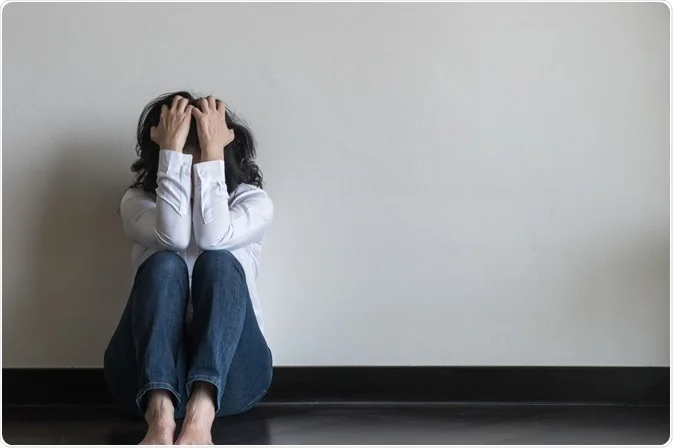
Anxiety attacks usually come on slowly and are connected to things that make you feel very worried or stressed.
These attacks involve anxiety that gets worse little by little and can last for a long time. You might feel restless, and tired, have trouble focusing, and experience tense muscles.
Read More: What Causes Anxiousness? 9 Factors That Lie At The Root Of Anxiety
What Is A Panic Attack?

Panic episodes are characterized by the abrupt onset of strong and frequently overwhelming fearful events. They come with extremely difficult bodily symptoms such as nausea, shortness of breath, or an accelerated heartbeat.
Panic episodes can strike out of the blue with no apparent reason. Phobias are examples of external stressors that might trigger expected panic attacks.
Anxiety Attack vs Panic Attack: Differentiating Between the Two
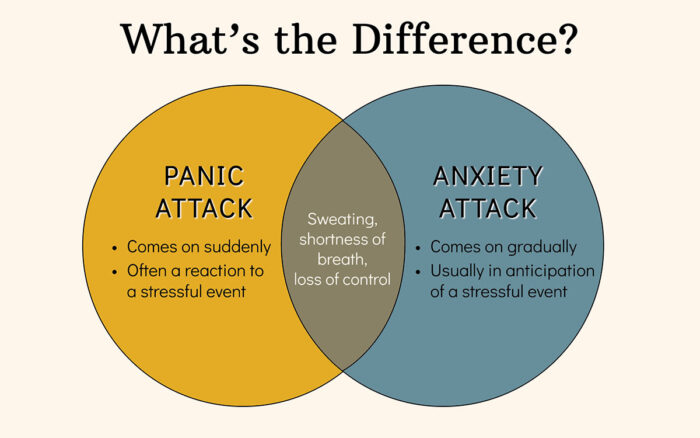
So far we have got the basics of the anxiety attack vs panic attack debate and it is time to analyze them into a deeper level. Let’s get into differentiating panic from anxiety:
1. Shared Symptoms and Overlaps
Anxiety and panic attacks have some symptoms in common, like a fast heartbeat, sweating, and feeling scared. Because of these similarities, it can be hard to tell them apart. However, the situation and how intense the symptoms are can give you some clues.
2. Key Distinctions to Identify Each
The main differentiating aspect of anxiety attack vs panic attack is how they start and how long they last.
Anxiety attacks build up slowly in reaction to something stressful, while panic attacks happen suddenly and without warning. Anxiety is usually ongoing and more widespread, whereas panic is short and intense.
For identifying panic attack signs consider the below-mentioned symptoms:
- Quick strike of fear attack
- Intense physical signs such as heart attack or life-threatening condition
- Fear of dying or losing control
- It can happen at any time without any particular reason
- Stays for a shorter time than an anxiety attack
Here are a few anxiety attack symptoms that will help you differentiate panic from anxiety:
- It comes as an effect of a traumatic event
- Anxiety attacks make you uneasy, restless
- The physical symptoms are there but lesser than panic attack
- This happens because of a trigger
- Anxiety attacks last for a longer time, sometimes for a week or even a month
3. Diagnostic Criteria and Guidelines
Doctors use specific guidelines to diagnose anxiety and panic disorders. Anxiety disorders are diagnosed when someone has constant and excessive worry that affects their daily life.
Panic disorder is diagnosed when a person has repeated, unexpected panic attacks and then worries about having more attacks for at least a month. Getting the right diagnosis is important for getting the right treatment.
Managing Anxiety and Panic Attack Triggers and Symptoms
Anxiety attack relief strategies along with panic attack prevention tips are the solutions to manage their symptoms. A few important strategies to manage anxiety and panic are as follows:
1. Anxiety Coping Strategies: Breathing Exercises, Mindfulness, CBT, 5-4-3-2-1 Method
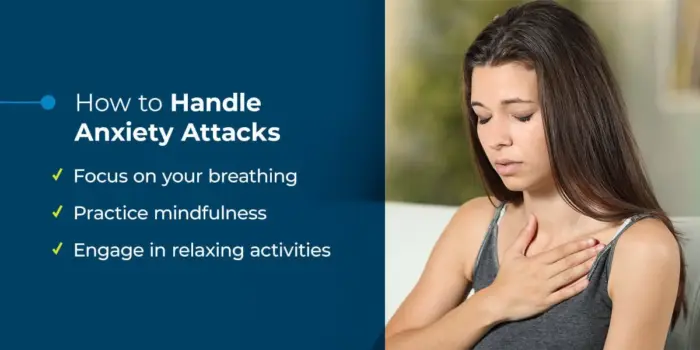
Do you feel restless and breathless during an anxiety attack? You can try deep breathing exercises. If you feel mental anguish and extreme emotional imbalance then try mindfulness and cognitive-behavioral techniques. These methods help reduce overall anxiety levels and improve resilience to stress.
Apart from these, the 5-4-3-2-1 method is also very effective in managing anxiety attacks. You have to name 5 things you can see, 4 things you can touch, 3 things you can listen to, 2 things you can see, and 1 thing you can feel the taste in your mouth. Therefore, this method engages your senses to calm down your nerves.
2. Panic Attacks Coping Strategies: Muscle Relaxation, Therapy, Breathing Exercises
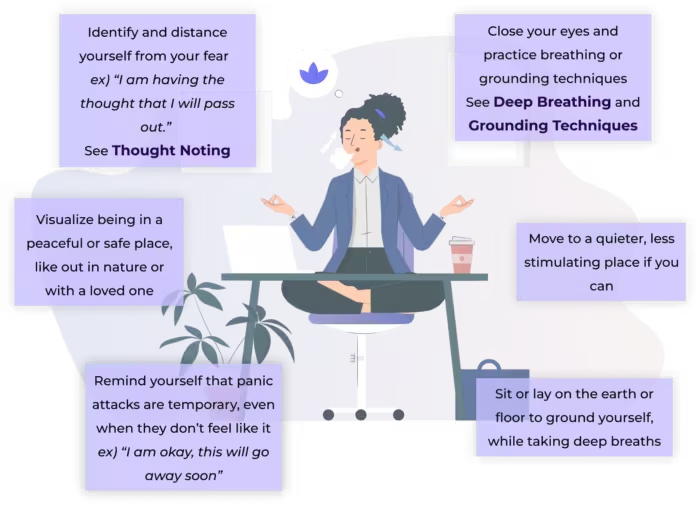
Panic attacks require immediate and focused coping strategies to manage their intense nature. Techniques such as grounding exercises, progressive muscle relaxation, and controlled breathing can help mitigate symptoms.
However, the increasing level of panic attacks may cause serious harm to you. At this time, getting professional help such as therapy or medication is needed.
Celebrities like Emma Stone, and Miley Cyrus talked about their anxiety and panic attack issues that came under control after they opted for therapy and help from their loved ones.
Read More: How To Gain Control Of Your Life? 10 Proven Coping Skills For Panic Attacks
3. Professional Treatment Options: CBT, Therapy, Medication

Professional treatment for anxiety and panic attacks may include therapy, medication, or a combination of both.
Cognitive-behavioral therapy (CBT), dialectical behavior therapy (DBT), etc. are particularly effective, in helping individuals understand and change their thought patterns.
Selena Gomez, the renowned singer has opened up about how DBT, group therapy, equine therapy, etc. professional treatment helped her to manage panic attack triggers and symptoms.
Medications like SSRIs and benzodiazepines can also provide relief under medical supervision. Sometimes, people get shamed for taking medication for mental disorders. However, it is not a matter of shame, but rather a thoughtful step for a better future.
Kristen Bell, the popular Veronica Mars actress spoke clearly about her taking medications for anxiety and depression. She has brought out the significance of the right medication with the consultation of a psychologist to reduce the intensity of anxiety and panic attacks.
4. Lifestyle Changes and Self-Care Practices: Diet, Sufficient Sleep, Relaxation

Incorporating lifestyle changes and self-care practices can significantly reduce the frequency and severity of anxiety and panic attacks. Regular exercise, nutritional dieting strategies, sufficient sleep, and relaxation techniques are beneficial.
Check Out This: Anxiety Self Rating Scale
Anxiety Attack vs Panic Attack: Let Us Win the Battle
Hope you have gained a few valuable insights on anxiety attack vs panic attack from this discussion. Identifying panic attack signs, and coping with anxiety attacks are possible if you can understand your mental health at the right time. Give more time to yourself, heal your soul, and ensure you are living your best life.
Frequently Asked Qustions(FAQs)
1. How to differentiate between anxiety attack and panic attack
Panic attacks come on suddenly with intense fear and physical symptoms, while anxiety attacks build gradually with worry and stress. Duration and severity also differ between the two.
2. Can anxiety attacks lead to panic attacks?
Yes, anxiety attacks can lead to panic attacks. Persistent anxiety can escalate, triggering a sudden panic attack with more intense symptoms and a sense of losing control.
3. How can I tell if I’m experiencing an anxiety attack or a panic attack?
During a panic attack, symptoms peak quickly and are intense. Anxiety attacks build slowly, with milder symptoms related to stress and worry. Focus on how sudden and severe the symptoms are.
4. What triggers panic attacks?
Panic attacks can be triggered by stress, major life changes, phobias, trauma, or even certain medications. Sometimes, they occur without an obvious cause, adding to the fear and confusion.
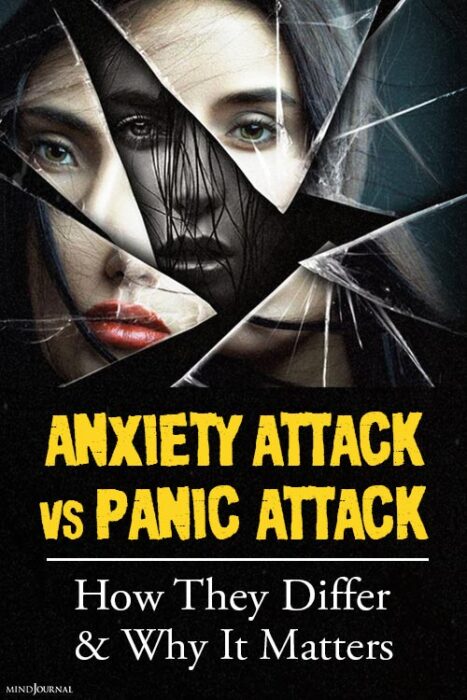



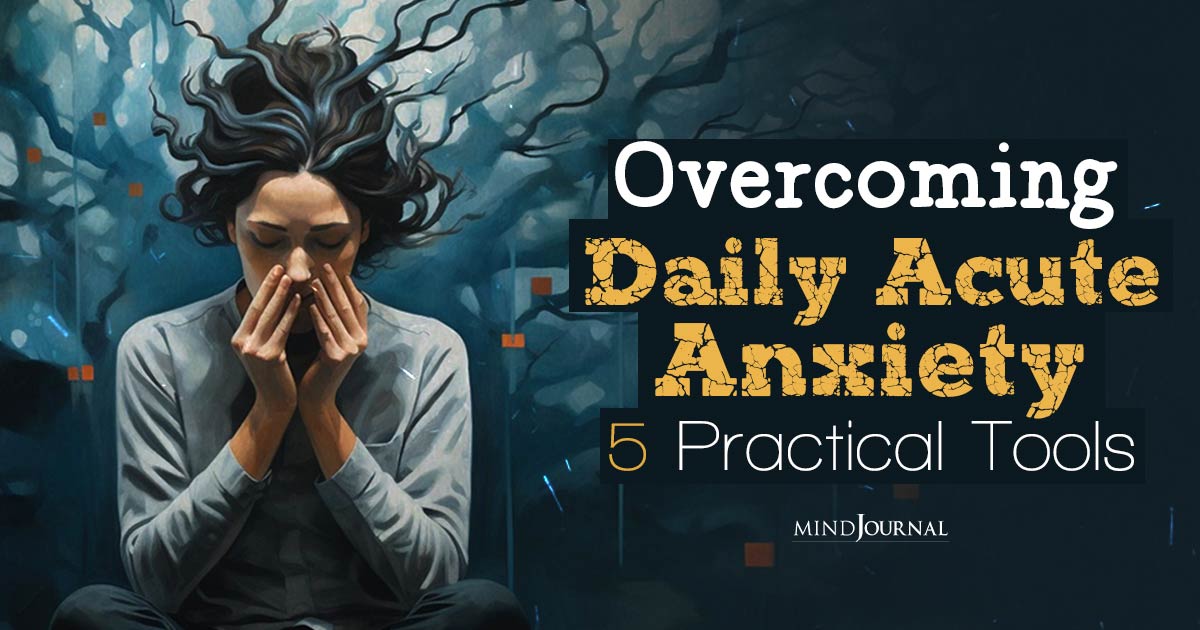
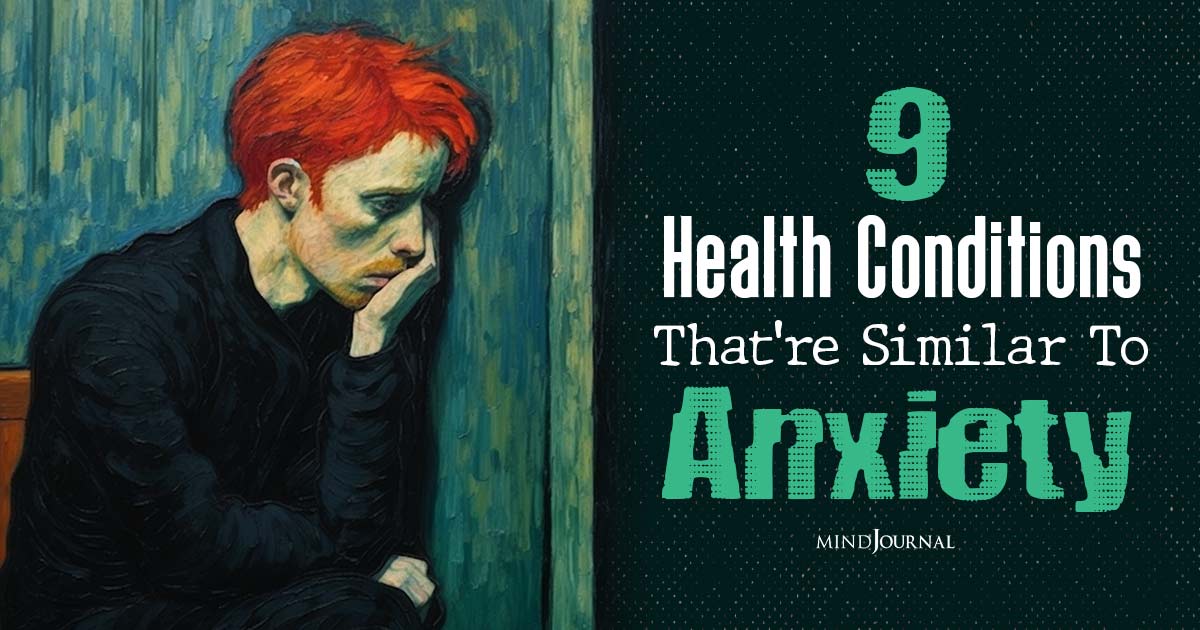

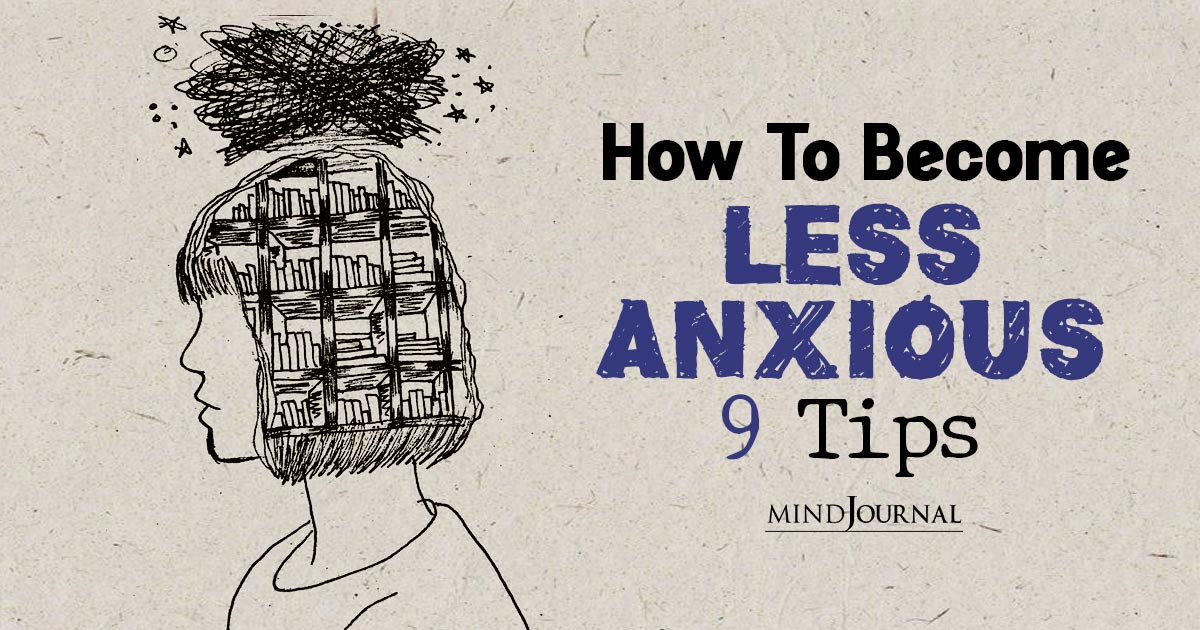
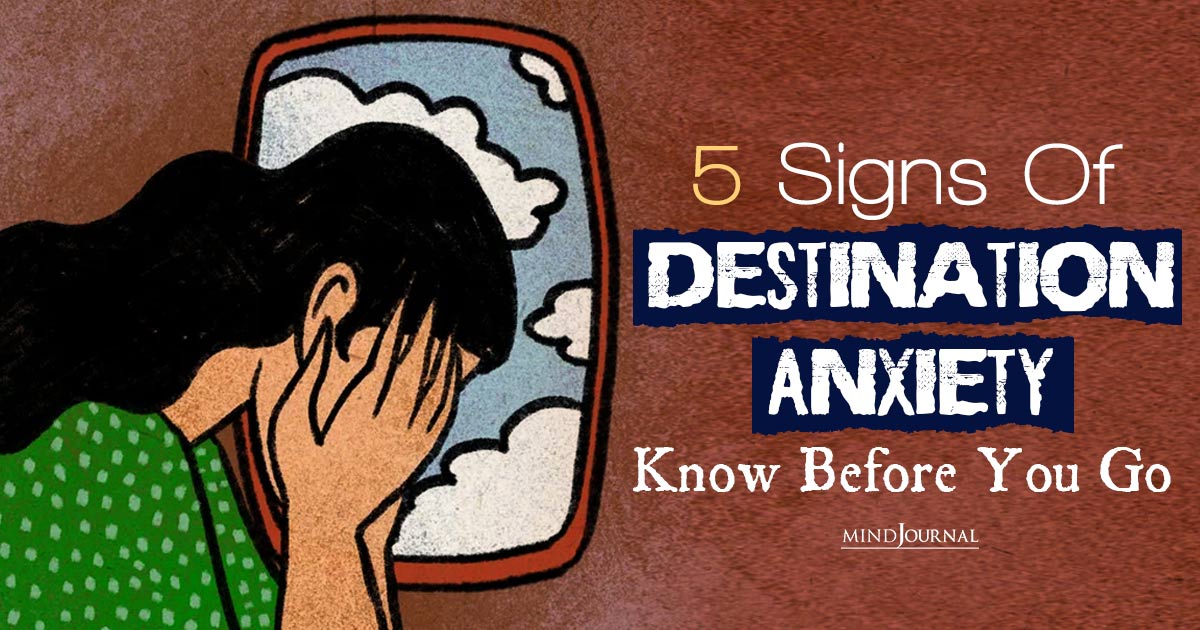
Leave a Reply
You must be logged in to post a comment.